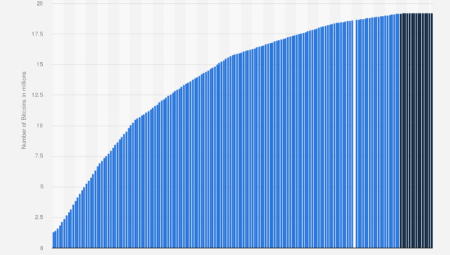is bitcoin legal in india
Bitcoin has taken the world by storm, and India is no exception. With its decentralized nature and potential for high returns, many people in India are interested in investing in Bitcoin. However, there is still a lot of confusion surrounding the legality of Bitcoin in India.
The Reserve Bank of India (RBI) has issued several warnings about the risks involved with cryptocurrencies, including Bitcoin. They have also stated that Bitcoin is not considered legal tender in India. This means that while you can own and trade Bitcoin in India, businesses are not allowed to accept it as a form of payment.
However, this does not mean that owning or trading Bitcoin is illegal in India. There are no laws explicitly prohibiting individuals from buying, selling, or holding Bitcoin. In fact, many Indians have become successful Bitcoin traders and investors.
In recent years, the Indian government has shown a more positive attitude towards cryptocurrencies. In 2019, the Supreme Court of India lifted the ban on banks providing services to cryptocurrency exchanges, which was previously imposed by the RBI.
Additionally, in 2021, the Indian government proposed a bill that would ban private cryptocurrencies while allowing the development of a central bank digital currency (CBDC). The bill is currently being reviewed by the parliament, and it remains to be seen how it will affect the use and legality of Bitcoin in India.
Overall, while the legal status of Bitcoin in India may be somewhat uncertain, there is no law explicitly prohibiting individuals from owning or trading it. As with any investment, it is important to do your research and understand the risks involved. But for those who are willing to take the risk, Bitcoin remains a potentially lucrative investment opportunity in India.
Reserve Bank of India’s (RBI) stance on Bitcoin
The Reserve Bank of India (RBI) has been monitoring the growth of cryptocurrencies, particularly Bitcoin, for quite some time now. In response to the increasing popularity of Bitcoin, the RBI issued a circular in 2018 banning banks from dealing with companies or individuals involved in cryptocurrency trading.
The RBI’s stance on Bitcoin stems from concerns regarding the lack of regulation and potential risks associated with cryptocurrencies. The central bank has expressed worries about how cryptocurrencies can be used for illegal activities such as money laundering, terror financing, and other fraudulent activities.
Moreover, the RBI has also cited concerns regarding the volatility of Bitcoin’s value, which poses a threat to investors’ financial stability. One of the factors that make Bitcoin so volatile is its decentralized nature, leaving it vulnerable to scams and market manipulation.
Despite the ban, however, the Indian government has not prohibited citizens from holding or trading cryptocurrencies. Individuals are still free to invest in cryptocurrencies through peer-to-peer transactions or foreign exchanges. However, the RBI has since maintained its reservations towards digital currencies and their impact on the Indian financial system.
Recently, the Indian government proposed a bill that would ban all private cryptocurrencies while creating a regulatory framework for an official digital currency issued by the RBI. This move comes after reports of several cryptocurrencies being used to finance illegitimate activities, including the protests against the Citizenship Amendment Act in early 2020.
In conclusion, the RBI remains cautious towards the use of Bitcoin and other cryptocurrencies within their jurisdiction. While the Indian government may soon introduce regulations around cryptocurrencies, individuals should still exercise caution when investing in this volatile asset class. It would be best to keep themselves informed about the latest developments in the field to make informed investment decisions.
Indian Government’s view on Bitcoin
The Indian government’s view on Bitcoin remains a topic of much debate and speculation. While the cryptocurrency has gained significant popularity in recent years, the Indian government has not yet provided a clear regulatory framework for its use.
In 2018, the Reserve Bank of India (RBI) banned all financial institutions under its jurisdiction from dealing with cryptocurrency exchanges, effectively prohibiting banks from facilitating cryptocurrency transactions. This decision was met with mixed reactions, with some arguing that it stifled innovation while others supported the move as a means of protecting consumers from the risks associated with cryptocurrencies.
Since then, the Indian government has taken steps to clarify its stance on cryptocurrencies. In early 2021, the Ministry of Corporate Affairs announced new disclosure requirements for companies that deal in cryptocurrencies, requiring them to disclose their holdings and profits or losses related to cryptocurrency trading.
However, the Indian government’s overall position on cryptocurrencies remains unclear. In March 2021, reports emerged that the Indian government was considering a blanket ban on all private cryptocurrencies, which would effectively outlaw Bitcoin and other popular cryptocurrencies. The proposed ban has been met with criticism from those who argue that it would stifle innovation and harm India’s growing blockchain industry.
Despite the uncertainty surrounding the Indian government’s stance on Bitcoin, the cryptocurrency continues to gain popularity in the country. According to a survey conducted by the cryptocurrency exchange Paxful, India is one of the fastest-growing markets for cryptocurrency adoption, with nearly a quarter of respondents indicating that they had purchased or traded cryptocurrency in the past year.
In conclusion, the Indian government’s view on Bitcoin remains in flux, with conflicting signals and responses from different branches of government. While there are concerns about the risks associated with cryptocurrencies, there is also recognition of the potential benefits of blockchain technology and the need for clear regulations to facilitate their use. As the cryptocurrency market continues to evolve, it remains to be seen how the Indian government will respond and shape the future of cryptocurrency in the country.
Cryptocurrency Regulations in India
Cryptocurrencies have gained immense popularity worldwide over the past few years, and India is no exception. However, the Indian government has not yet adopted a clear stance on the use of cryptocurrencies in the country. In recent years, there has been a lot of debate surrounding the regulation of cryptocurrencies in India.
In 2018, the Reserve Bank of India (RBI) issued a circular that prohibited banks from dealing with cryptocurrency exchanges and other related businesses. This move was aimed at curbing the risks associated with cryptocurrencies such as money laundering and terrorism financing. However, this circular was challenged by the cryptocurrency industry in the Supreme Court of India, which eventually ruled in favor of the industry.
Following this ruling, the Indian government set up a committee to examine the issue of cryptocurrency regulation. The committee submitted its report in 2019, recommending a complete ban on cryptocurrencies in India. However, this recommendation was met with strong opposition from the industry and cryptocurrency enthusiasts.
In March 2020, the Supreme Court of India lifted the ban on cryptocurrencies, allowing exchanges to once again deal with banks. However, the government later introduced a bill in parliament that proposed a ban on all private cryptocurrencies, including Bitcoin. The bill also proposed the creation of a framework for the introduction of a digital currency issued by the Reserve Bank of India.
The proposed bill has faced criticism from the industry and experts who believe that a blanket ban on cryptocurrencies would stifle innovation and hinder the growth of the digital economy in India. They argue that instead of banning cryptocurrencies, the government should focus on regulating the industry to mitigate the risks associated with their use.
In conclusion, while India may not yet have a clear regulatory framework for cryptocurrencies, it is evident that the government recognizes the need to address this issue. As the industry continues to grow and evolve, it remains to be seen how the Indian government will approach the regulation of cryptocurrencies in the future.
RBI’s circular banning banks from dealing with cryptocurrencies
The Reserve Bank of India (RBI) recently issued a circular banning all financial institutions under its jurisdiction from dealing with cryptocurrencies. This move has caused a stir in the Indian crypto community, raising concerns about the future of cryptocurrencies in the country.
The circular states that banks and financial institutions regulated by RBI should not deal with or provide services to any individuals or businesses dealing with virtual currencies. The circular also mandates that banks must exit existing relationships with cryptocurrency exchanges within three months.
This decision by RBI is based on the concern that cryptocurrencies pose a risk to the stability of the financial system. The central bank has repeatedly warned investors about the volatility of cryptocurrencies and their potential use in illegal activities like money laundering and terrorist financing.
The ban on cryptocurrencies has been met with mixed reactions from industry experts and stakeholders. Some believe that this move will stifle innovation and development in the crypto sector in India, while others applaud the RBI for taking a cautious approach to protect the interests of investors.
Despite this ban, it is important to note that the Indian government has not yet declared cryptocurrencies illegal. Instead, they have taken a wait-and-watch approach, with plans to introduce their own digital currency in the near future.
In the meantime, the crypto industry in India may face some challenges due to the RBI’s circular. However, there are still ways for crypto enthusiasts to trade and invest in cryptocurrencies outside of the banking system, such as using peer-to-peer exchanges or decentralized platforms.
In conclusion, the RBI’s circular banning banks from dealing with cryptocurrencies is a significant development in the Indian crypto landscape. While it may limit the accessibility of cryptocurrencies to some extent, the industry is still poised for growth as long as innovative solutions continue to emerge.
Supreme Court’s verdict on RBI’s circular
The Supreme Court’s verdict on RBI’s circular has been making headlines in the financial world. The Reserve Bank of India (RBI) had issued a circular in 2018 directing banks to immediately identify and report any defaulting borrowers who had defaulted on loans over Rs. 2,000 crores. This move was aimed at reducing bad loans, which had become a major concern for the banking sector. However, some companies challenged the circular’s constitutional validity, leading to the Supreme Court’s intervention.
In its verdict, the Supreme Court struck down the RBI’s circular, stating that it violated the principles of natural justice. The court’s decision came as a relief to many companies that were facing insolvency proceedings due to non-performing assets (NPAs). The circular had put immense pressure on these companies, with several of them being forced into bankruptcy.
The Supreme Court’s decision is expected to have far-reaching implications for the banking sector. It sends out a clear message that the courts will not tolerate any arbitrary measures taken by regulatory bodies that impinge on the rights of borrowers. The verdict is likely to provide a much-needed boost to companies struggling to repay their debts and could help revive the economy by enabling them to access credit.
However, some experts have expressed concerns about the impact of the decision on the banking sector’s health. They fear that it could lead to a rise in bad loans and put further strain on banks’ balance sheets. It remains to be seen how the RBI will respond to this setback and what steps it will take to address the issue of NPAs.
In conclusion, the Supreme Court’s verdict on RBI’s circular has been a landmark ruling that has generated significant interest in the financial markets. While it provides relief to distressed borrowers, it also raises questions about the effectiveness of regulatory measures aimed at reducing bad loans. The decision is likely to have both positive and negative implications for the banking sector, and it remains to be seen how the RBI will respond to this development.
Taxation of Bitcoin in India
Are you a Bitcoin investor in India? If so, you may have concerns about the taxation of your investments. The Indian government has been grappling with how to classify and regulate cryptocurrency for years now, and the tax implications are just one aspect of this ongoing debate.
The Income Tax department of India has issued statements regarding the taxation of cryptocurrencies like Bitcoin. According to their guidelines, income generated from Bitcoin will be taxed under the head “Income from Other Sources.” This means that the profits made from trading Bitcoin will be subject to income tax at the individual’s applicable slab rates.
The rules differ for those who mine cryptocurrencies or earn them through other means. In those cases, the value of the cryptocurrency at the time it was mined or earned will be included as part of the individual’s taxable income. Therefore, these individuals will need to pay taxes on the fair market value of the cryptocurrency at the time it was received.
It is important to note that if an individual holds Bitcoin as a capital asset, then the gains made from selling it will fall under the category of capital gains. Long-term capital gains tax will apply if the holding period exceeds 36 months, whereas short-term capital gains tax will apply if the holding period is less than or equal to 36 months.
Another key consideration for Bitcoin investors in India is the Goods and Services Tax (GST). Currently, there is no GST on the purchase or sale of cryptocurrencies. However, if cryptocurrencies are used to purchase goods or services, then GST may be levied on the value of those goods or services.
In conclusion, while the Indian government has not yet passed any specific laws regulating cryptocurrencies like Bitcoin, investors must still abide by existing tax laws. It is crucial for Bitcoin investors in India to keep track of all transactions related to their investments, including mining, trading, and purchases, and to report them accurately on their tax returns.
Bitcoin trading and investment in India
Bitcoin trading and investment in India have been on the rise recently as more people are turning to cryptocurrency as a means of making profits. However, many people are still skeptical about this new form of investment and wonder whether it’s worth the risk.
First and foremost, it’s important to note that the Indian government has not yet regulated Bitcoin or any other cryptocurrency. This means that there is no legal framework for trading or investing in Bitcoin, and it’s up to individual investors to conduct their due diligence before making any investments.
One of the main benefits of investing in Bitcoin is the potential for high returns. Bitcoin has shown tremendous growth over the past few years, with some investors making significant profits in a short amount of time. However, it’s crucial to remember that Bitcoin is a highly volatile asset, and its value can fluctuate rapidly. Therefore, it’s essential to keep an eye on market trends and be prepared to sell when necessary.
Another factor to consider is the security of your investment. While Bitcoin’s decentralized nature makes it difficult to hack or manipulate, there have been several high-profile breaches in recent years. Therefore, it’s crucial to store your Bitcoin in a secure wallet and take all necessary precautions to protect your investment from theft or loss.
Additionally, it’s important to be aware of the tax implications of investing in Bitcoin in India. Currently, the government does not recognize Bitcoin as a currency, and therefore, it falls under the category of assets or commodities. This means that any profits made from Bitcoin trading or investment are subject to capital gains tax.
In conclusion, Bitcoin trading and investment in India can be a lucrative opportunity for those willing to take on the risks associated with this volatile asset. However, it’s crucial to do your research, invest wisely, and take all necessary precautions to protect your investment. With the right approach, Bitcoin can be a valuable addition to your investment portfolio.
Future of Bitcoin in India
Bitcoin has been making waves in the financial world since its inception over a decade ago. It is a decentralized digital currency that operates independently of any central bank or government. In India, Bitcoin has had a rocky start due to regulatory uncertainty and concerns about its potential use for illicit activities. However, as India continues to embrace technology and digitization, the future of Bitcoin in the country looks promising.
In recent years, India has seen a surge in cryptocurrency adoption, with a growing number of people investing in Bitcoin and other digital currencies. This trend has been fueled by the increasing availability of crypto exchanges, which allow people to buy and sell cryptocurrencies easily and securely. Moreover, the pandemic has further accelerated the adoption of digital payments, and Bitcoin’s decentralized nature and low fees make it an attractive option for many.
Despite the growing popularity of Bitcoin, there are still regulatory uncertainties surrounding its legality in India. The Reserve Bank of India (RBI) has previously issued directives prohibiting banks from dealing with cryptocurrencies, which has made it challenging for crypto exchanges to operate in the country. However, the Supreme Court of India overturned this ban in 2020, signaling a more positive outlook for the future of Bitcoin in India.
In addition to regulatory developments, India’s tech-savvy population and thriving start-up ecosystem also bode well for the future of Bitcoin. With a large number of young people entering the workforce every year, there is a growing interest in new technologies and innovations. Moreover, India has become a hub for blockchain development, with several startups working on blockchain-based solutions for various industries.
In conclusion, the future of Bitcoin in India looks bright, despite regulatory uncertainties. With the growing popularity of digital payments and increasing interest in new technologies, Bitcoin is well-positioned to become a mainstream payment method in the country. As the Indian government continues to explore the potential of blockchain technology, we can expect to see more positive developments in the regulatory landscape for Bitcoin and other cryptocurrencies in the years to come.
Risks associated with investing in Bitcoin in India
Bitcoin has been making waves as a popular investment option in India, but not without its fair share of risks. If you’re considering investing in Bitcoin, it’s important to understand the potential risks associated with this volatile cryptocurrency.
One of the primary risks associated with investing in Bitcoin is its volatility. The value of Bitcoin can fluctuate wildly in a short amount of time, which can lead to significant gains or losses for investors. This can be particularly challenging for novice investors who may not have experience managing such volatility.
Another risk associated with investing in Bitcoin is the lack of regulation. Unlike traditional investments, Bitcoin is not governed by any central authority or regulatory body. This means that there are fewer protections in place for investors, particularly in the event of fraud or theft.
Investing in Bitcoin also requires a certain level of technical knowledge and understanding. The process of buying and selling Bitcoin can be complex and confusing, particularly for those who are new to the world of cryptocurrencies. Additionally, storing Bitcoin securely can be challenging, particularly given the prevalence of cyber threats.
Finally, it’s worth noting that investing in Bitcoin is not without legal risks. While the Indian government has not banned Bitcoin outright, it has issued warnings about the risks associated with cryptocurrencies. As such, investing in Bitcoin could potentially expose investors to legal issues down the line.
Ultimately, while investing in Bitcoin can be an exciting opportunity, it’s important to understand the potential risks involved. By doing your research, learning about the technology, and staying up-to-date on regulatory developments, you can make informed decisions about whether Bitcoin is the right investment for you.




